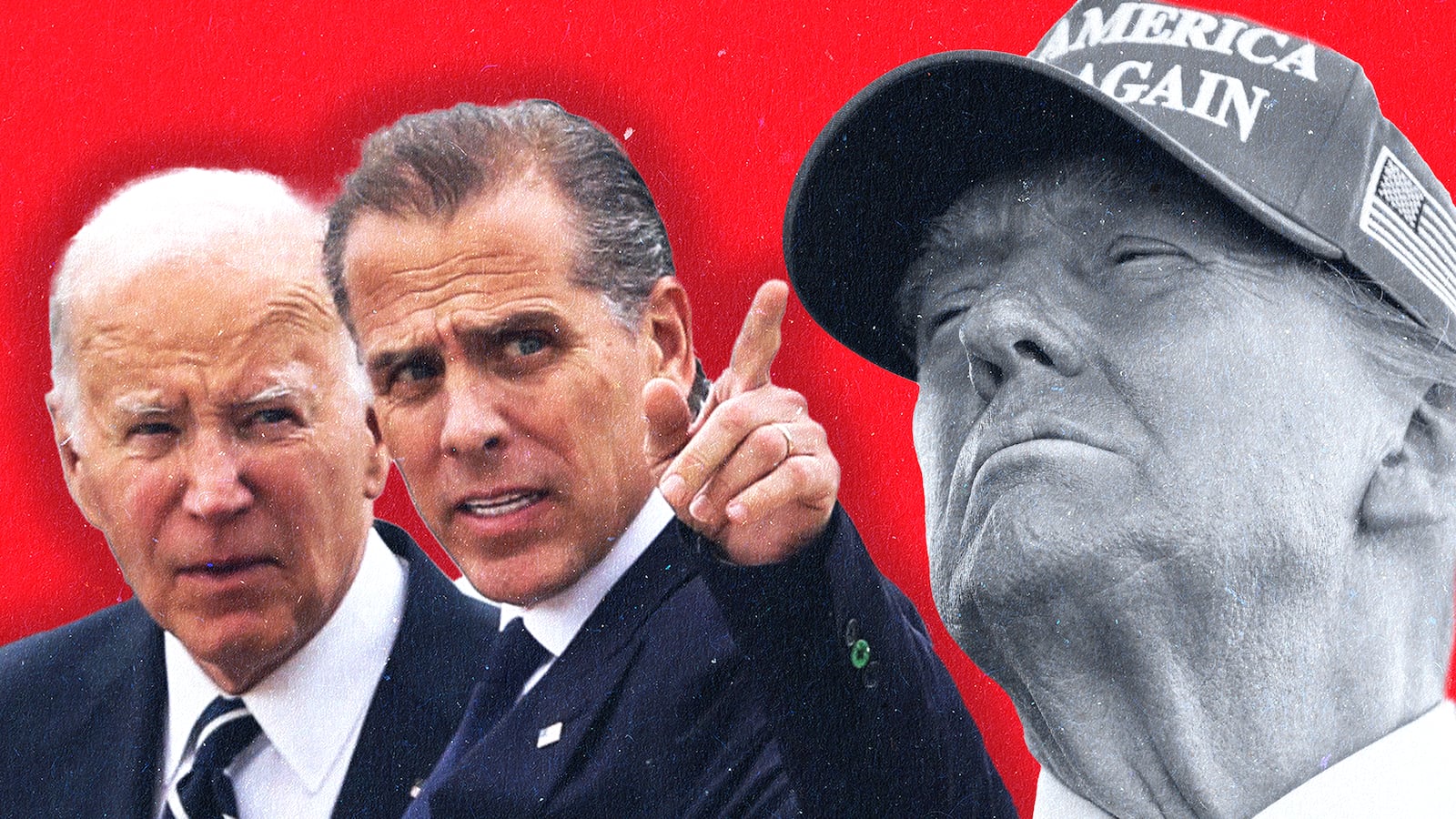President Joe Biden’s pardon of Hunter Biden ended the nearly decade-long prosecution of his only surviving son and immediately provoked the expected storm of criticism. The criticism, whether from Republicans or Democrats is unjustified. As pardons go, this one was well within norms, righteous, and gives us a glimpse of how this ultimate exercise of executive power can potentially be used to heal and even protect.
The Presidential pardon power smacks of Kings and rulers, not democratic leaders. English history dates pardons back to King Ine of Wessex in the 7th Century.
Common sense informs that it dates back to the first “leader” wielding the biggest club. Contrary to Alexander Hamilton’s surprisingly naïve view that giving the President sole power was preferable because “a single person would be “a more eligible dispenser of the mercy of the government than a body of men,” there is no legitimate reason to give so much discretion to the executive with no accountability.
Recent efforts to lessen the Kingly stench of pardons with a the perfume of objective process have included creating an Office of the Pardon Attorney within the Department of Justice (OPA) with an application process.
The OPA has traditionally done extensive due diligence on such applications before making recommendations to the Attorney General who in turn presents these to the President. The OPA process was abandoned altogether during the first Trump presidency as Trump depended more on social media influencers like Kim Kardashian for his vetting process on pardons or simply pardoned family like Charles Kushner—Jared’s dad—who is now nominated to be the next ambassador to France.
But Trump was hardly an outlier here. President Clinton pardoned his own brother Roger, as well as giving an infamous midnight hour pardon to financier Marc Rich. Jimmy Carter pardoned his brother, and President Lincoln pardoned his sister-in-law.
Hunter Biden falls well within in the norms for familial pardons. His crimes were modest, consisting of tax evasion for which he paid back the taxes and buying a gun while addicted to cocaine—a gun he never used in any crime and only owned for 11-days. Indeed, a pretty much unanimous universe of legal experts agree that criminal prosecution for these crimes is extremely rare and likely due to the fact that Hunter’s father was President of the United States.

What makes his pardon unusual is how President Biden consistently claimed he would not grant one as well as the unusual specificity that Biden made public for why he changed his mind.
Criticism from Republicans has been immediate and predictably hyperbolically wrong. Rep. James Comer: “Not only has he [President Biden] falsely claimed that he never met with his son’s foreign business associates and that his son did nothing wrong, but he also lied when he said he would not pardon Hunter Biden…[t]he charges Hunter faced were just the tip of the iceberg in the blatant corruption that President Biden and the Biden Crime Family have lied about to the American people.”
Holding aside the comical equating of supposed lying about enormous political corruption with lying about intentions to pardon a relative, Comer continues to misunderstand that Hunter Biden was neither charged nor convicted of corruption and no evidence of it exists.
Criticism from Democrats also misses the mark, conflating as they do President Biden’s concern for his son with whether the pardon power was properly used. Colorado Governor Polis said: “This is a bad precedent that could be abused by later Presidents and will sadly tarnish his reputation” and “Rep. Greg Stanton (D-Ariz.) said on X: “I respect President Biden, but I think he got this one wrong. This wasn’t a politically-motivated prosecution. Hunter committed felonies, and was convicted by a jury of his peers.”
Such comments reflect woeful ignorance of the pardon power. There is no such thing as “precedent” for the pardon power—it can be used any way a President feels. Nor is disagreement over whether the prosecution was politically motivated relevant because no such requirement exists either.

But the fact that President Biden made plain his belief that the prosecution was politically motivated is deeply significant. Rarely are the factors underlying a pardon so fully public. Even under the OPA system much of the basis for a recommendation of clemency remain confidential in a way reminiscent of pre-sentence reports prepared for a judge. The critics can say what they want but the reasons for Hunter being pardoned are now memorialized. The pardon itself is impossible to circumvent as the time period covers the last ten years—making any older potential charges time-barred.
The reasons are righteous. This was a prosecution born under the political pressure of Trump’s political henchman Bill Barr and then allowed to continue under Merrick Garland’s passivity—it would have died a natural death with a plea bargain that faltered in court but could have been revived but for Republican political pressure.
That political heat seemingly caused Garland to elevate Weiss to Special Counsel status, giving Weiss a proverbial iron rice bowl of job security. If Garland lacked the will to end it then it was proper for his boss to do so.
President Biden can’t spare us from the consequences of a second Trump term with the same ease. But, as suggested by former Nixon White House Counsel John Dean, there is more good Biden can do with the pardon power before he leaves. He could pardon all of the targets of the Trump regime like Special Counsel Jack Smith, Liz Cheney, and all those threatened by Trump’s vengeance.
Dean then suggests Biden could pardon Trump. President Gerald Ford pardoned Dean’s old boss in an effort to end a national nightmare. It didn’t. But Dean’s suggestion to Biden might come much closer to accomplishing that goal. I might add to Dean’s suggestion that Biden pardon the many enablers of Trump’s schemes, including the members of Congress that Garland’s DOJ never charged and maybe even Trump’s chief-of-staff—new and old.
The chances in the future of any these being charged is now near zero so little would be lost. But much could be gained by illuminating more clearly those who deserve the protection of pardons, and those who should have needed them.







